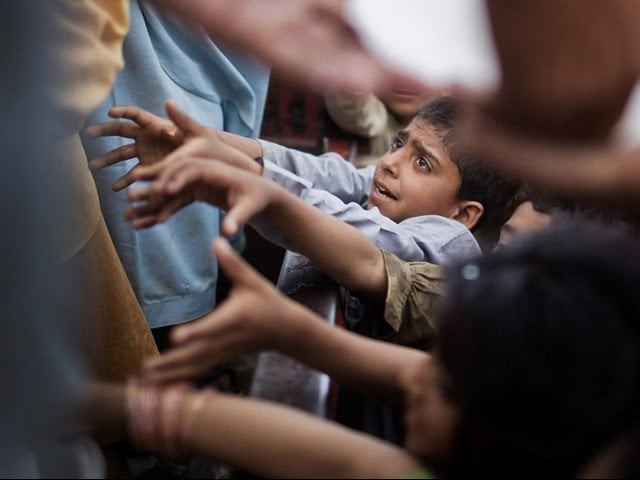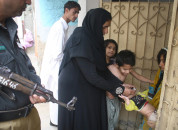Eat healthy: Two billion people surviving on ‘poor’ diet
Food experts declare state of malnutrition in Pakistan alarming

Food experts declare state of malnutrition in Pakistan alarming. PHOTO: FILE
The state of malnutrition is alarming in the country as 43.7 per cent children below five have stunted growth, and 62 percent of children and every second pregnant woman are anaemic, speakers at a one-day training workshop, titled Quality Assurance and Control Mechanism in Wheat Flour Fortification, said on Thursday.
The workshop was organised by the University of Agriculture, Faisalabad’s (UAF) National Institute of Food Sciences and the Technology and the Global Alliance for Improved Nutrition (GAIN).
Faculty of Food, Nutrition and Home Sciences Dean Prof Masood Sadiq Butt said 32.7 per cent of the children suffered from iron deficiency, 30.3 per cent from vitamin A and 40 per cent from zinc deficiency.

He said that two billion people across the world survived on diet thatl acked vital vitamins and nutrients. He called for scaling up wheat flour fortification to protect future generations from nutrient deficiency. He said under-nutrition, including micronutrient malnutrition, was one of the main causes of impaired physical and mental development among infants and children.
“Under a project launched with help from the GAIN, we have reviewed quality control steps taken by flour mills. In the second phase of the project, training workshops will be arranged in RahimYar Khan, Multan, Lahore, Faisalabad,Rawalpindi and Sargodha,” Butt said.
Punjab Flourmills’ Association chairmanAnjumIshaq said that malnutrition was one of the causes of deaths among children. He called for stepping up efforts for food fortification in order to fight malnutrition.
He urged scientists, experts, NGOs and all stakeholders to work in this regard. He said food fortification was the best solution to micronutrient malnutrition. He stressed the need for creating awareness among peoples regarding malnutrition.
GAIN Project Director Munawwar Hussain said the organisations had been working in 30 countries with the focus on malnutrition. He said the GAIN shared the vision of a world without malnutrition. “We are actively working on building alliances between governments, business and civil society to find and deliver solutions to malnutrition,” he said.
Hussain said the project spread over five phases, including production, policy and legislation, quality assistance and control, behavioural changes and management.
Published in The Express Tribune, September 18th, 2015.



















COMMENTS
Comments are moderated and generally will be posted if they are on-topic and not abusive.
For more information, please see our Comments FAQ